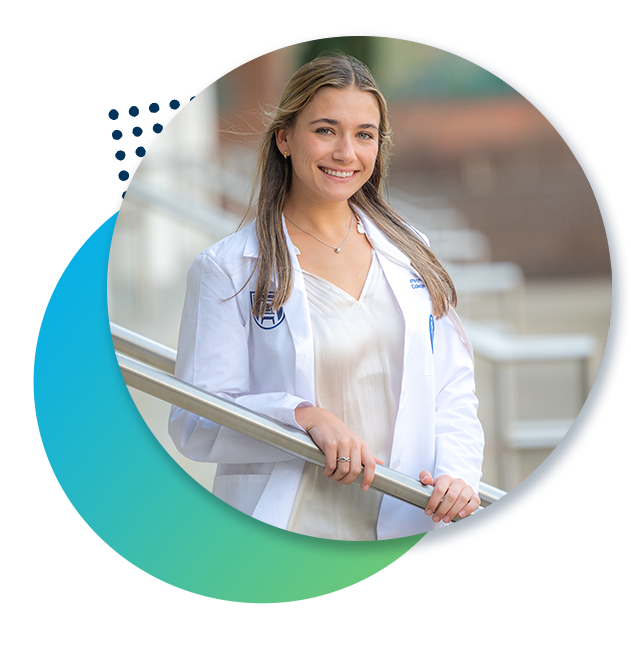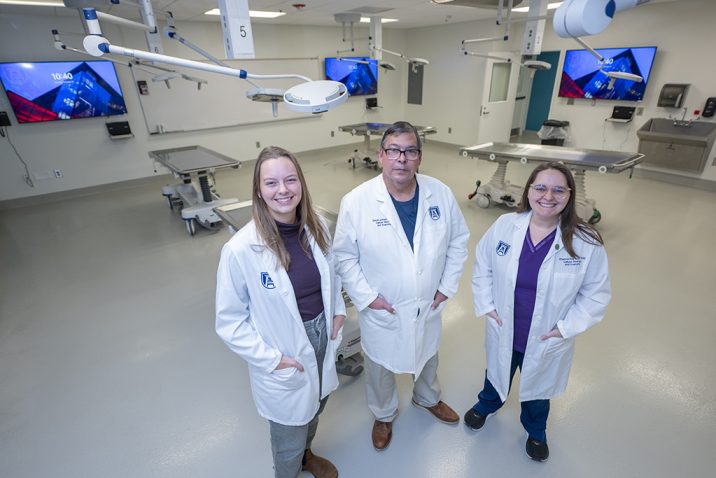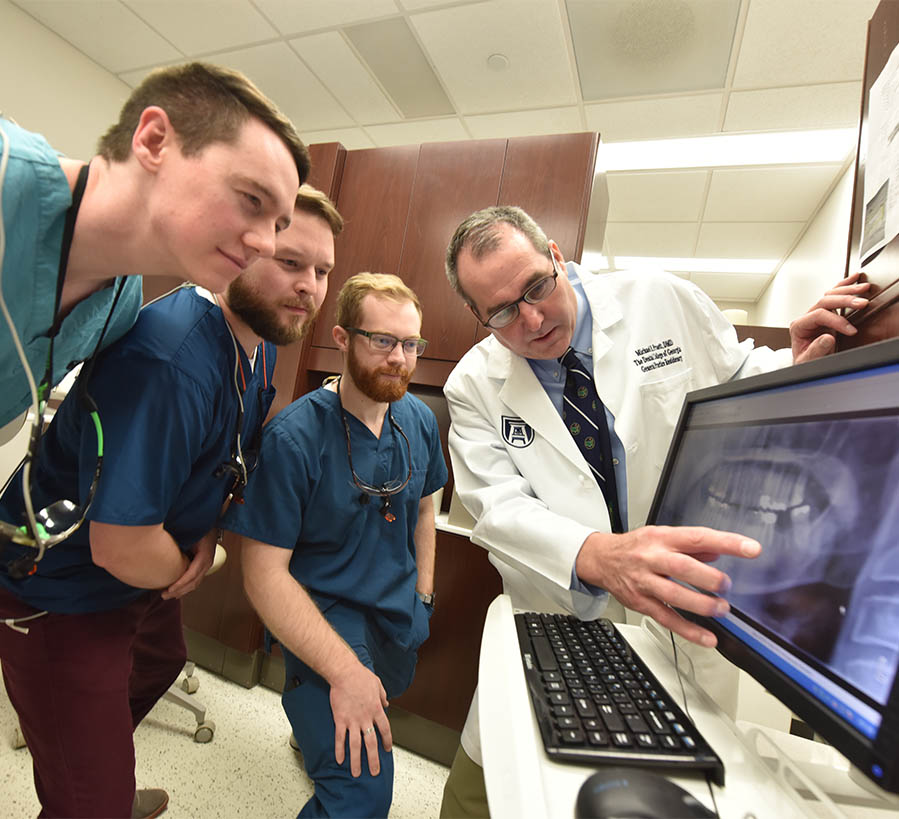Oral Biology
With a Master of Science in Oral Biology, you’ll be prepared for a wide range of career opportunities in academia, industry, or scientific research. This degree also prepares students for additional advanced study, including the PhD program in Oral Biology and Maxillofacial Pathology.
By choosing to earn your master’s degree in Oral Biology from The Dental College of Georgia at Augusta University, you’ll be joining a team dedicated to groundbreaking research in the diagnosis, prevention, and treatment of dental and oral health-related diseases.
Oral Biology is for you if you consider yourself
Life-Changing
Life-Saving
Education
Want to learn more about the Oral Biology program at Augusta University?
Request InfoWhat You'll Study
Coursework
Augusta University's Master of Science in Oral Biology is a 36-credit-hour program designed to be completed within five to 15 semesters. The curriculum emphasizes a strong connection between biomedical sciences and clinical care, with courses covering topics such as regeneration, oral microbiology and immunology, dental pharmacology, physiology, and craniofacial development.
Curriculum | Admissions Criteria | Tuition and Fees | Application Deadlines



EXPLORE. EXCEL. EXPAND.
Graduate School Advantage
Augusta University's graduate programs are among the best in the nation – and the world – and our graduate students are our most valuable assets. To ensure that our students earn more than a degree, the Graduate School offers a range of opportunities so they can develop the leadership, communication and personal skills needed for a rewarding life and academic, research or professional career.
See what the Graduate School has to offer »
About the Graduate SchoolExperience-based Education
Outside the Classroom
The Dental College of Georgia collaborates with departments across Augusta University and the University System of Georgia to conduct innovative, multidisciplinary research. Students benefit from cross-disciplinary opportunities for scientific investigation related to oral health.
Students also have access to a seminar series offered by the Center for Excellence in Research, Scholarship, and Innovation, which introduces them to the latest research and advancements in the field. The annual Research Table Clinic Day further promotes scientific exploration by providing students with the opportunity to present their research projects.
Multidisciplinary Approach
The strong connection between biomedical science and clinical care is emphasized in every class.
Lasting Legacy
Established in 1969, DCG is the state’s only dental college, providing care to nearly 50,000 patients each year.
Broad Research
Faculty research interests include oral cancer, bone metabolism, tissue regeneration, diabetes and hypertension.
Recognized Faculty
Faculty serve in high-profile organizations, on editorial boards for major scientific journals and present groundbreaking research at national meetings.
Your Future
Career Options
Graduates with a Master’s in Oral Biology are well-prepared for a range of dental and non-dental careers, including positions in academia, the military, and industry. Many also choose to pursue further education through doctoral programs.
Employment in dental-related fields is projected to grow by 8 % over the next decade. The median salary for professionals in careers related to oral biology is approximately $178,800.
Admissions Criteria at a Glance
GPA: Overall GPA of 3.0 on a 4.0 scale at the Baccalaureate level calculated on all undergraduate and graduate work attempted.
Degree Requirement: Minimum of a Bachelor’s degree or equivalent from an accredited college or university.
Transcripts: Official transcripts are required from all universities and colleges ever attended. Unofficial transcripts from US colleges and universities can be used in the admissions review process in lieu of official transcripts for this program.
Standardized Test Requirements: None are required for this program.
Letters of Recommendation: Recommendations from three individuals must be submitted through the application portal.
International Students: Please review the verification process for international transcripts and the english proficiency requirement.
Tuition & Fees Estimate
$4,801*
Estimated total
Full-time / In-State / Per Semester
$401
Tuition Per Hour
$675
Mandatory Fees
View Detailed Program Tuition
*Tuition & Fees listed here are for in-state students enrolling in the university for Fall 2025 semester.
Detailed Program Tuition InformationApplication Deadlines
Fall '26 International Application Deadline
- March 1, 2026
Fall '26 Application Deadline
- May 1, 2026
Early submission of all application materials is strongly advised.
All required application materials and documents must be received in order for an application to be considered complete and before an admission decision can be made. The program does not accept applications after the published application deadline, however the program will continue to accept application materials up to 2 weeks after the application deadline.
The Student and Exchange Visitor Information System {SEVIS) Form 1-20 for F-1 student status or Form DS-2019 for Exchange Visitor (J-1) Status cannot be issued by Augusta University for enrollment in this online program.

Why Augusta?
As Georgia’s only dental college, an oral biology degree from The Dental College of Georgia gets noticed.
Interdisciplinary research opportunities expose you to the latest advances in biomedical science and clinical care.
A state-of-the-art facility located on Augusta University’s Health Sciences Campus puts you at the heart of the university’s research enterprise.

A superhero and an NFL star: Give Kids a Smile Day 2026
A superhero and an NFL star: Give Kids a Smile Day 2026
Families leave lasting contribution to medical science with body donations
Families leave lasting contribution to medical science with body donations

